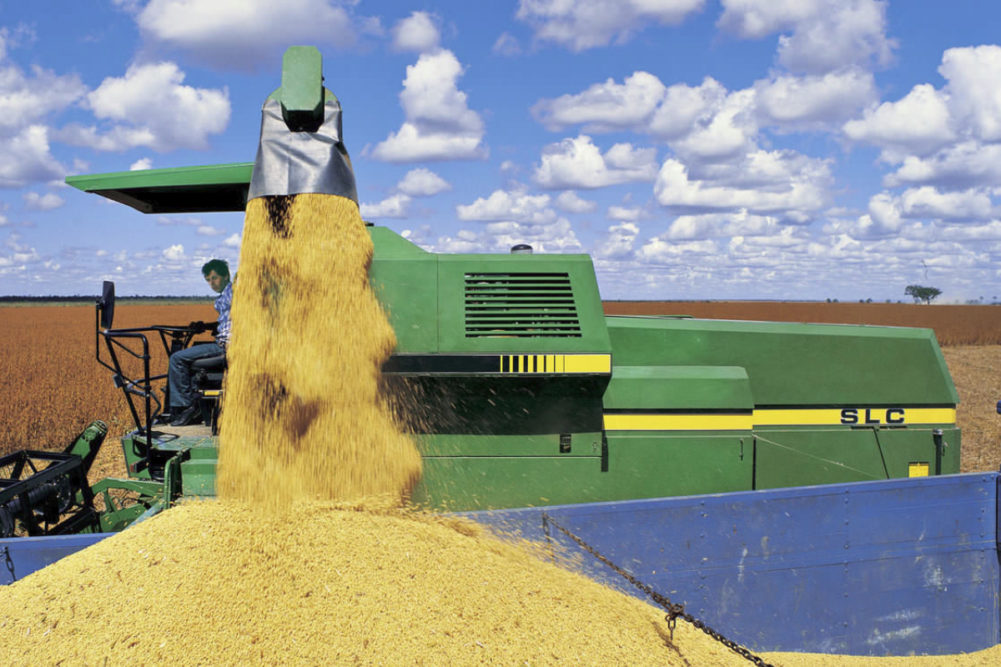WHITE PLAINS, N.Y. — Significant impairment charges within the Agribusiness and Edible Oil Products divisions combined with charges associated with the sale of its Brazilian sugar business dragged down earnings at Bunge Ltd. in fiscal 2019.
Bunge sustained a loss of $1,322 million in the year ended Dec. 31, 2019, which compared with income of $233 million, equal to $1.64 per share on the common stock, in fiscal 2018. Adjusted segment EBIT, meanwhile, increased 27% to $1,123 million from $881 million.
Sales were $41,140 million in fiscal 2019, down 10% from $45,743 million.
In the fourth quarter of 2019, Bunge sustained a loss of $68 million, which compared with a loss of $74 million in the fourth quarter of 2018. Adjusted segment EBIT increased 164% to $283 million from $107 million.
Sales were $10,783 million in the fourth quarter, down from $11,543 million in the same period the year before.
Major special charges in the fourth quarter included $29 million in interest and income tax charges ($59 million in the fourth quarter of 2018); $108 million in impairment charges ($10 million in 2018); $69 million related to the sale of the Brazilian sugar business; and $14 million for severance, benefits and other costs ($11 million in 2018). Overall, special charges totaled $242 million in the fourth quarter of 2019, versus charges of $83 million in the fourth quarter of 2018.
Despite the weaker results, Gregory A. Heckman, chief executive officer, said the management team did an “excellent job executing in the face of great complexity.”
“We effectively managed the things under our control and made substantial progress against our key priorities,” he said during a Feb. 12 conference call with analysts. “We drove improved operational performance, we took action to optimize the portfolio, and we increased our financial discipline and rigor, especially around capital allocation.
“On operational performance, our total oilseed crush volume and capacity utilization rates were the highest in the past five years. Our soy and sunseed crushing operations achieved the lowest industrial unit costs in that same time frame. These improvements helped us weather the difficult markets in 2019 and allowed us to capture more margin when we had the opportunity.”
Mr. Heckman said Bunge also during the year made the transition from a regional structure to a global operating model. The move has allowed the company to simplify how it operates.
“We reduced the number of bonus pools dramatically, incentivized teams to work together toward the common goals of Bunge,” he said. “We’ve received positive internal feedback about our headquarters move with clear evidence of improved efficiency, collaboration and shared insights as a result. We’ll be fully moved into St. Louis by the end of Q2.”
Bunge’s largest division, Agribusiness, had EBIT in 2019 of $491 million, down 24% from $645 million in 2018. In the fourth quarter, EBIT was $156 million, up 373% from $33 million. Agribusiness volumes were 139,968,000 tonnes in 2019, down 4% from 146,309,000 tonnes in 2018. In the fourth quarter, volumes were 34,976,000 tonnes, down from 35,416,000 tonnes. Sales were $28,407 million for the year, down 12% from $32,206 million, and $7,412 million in the fourth quarter, down 9%.
EBIT of the Bunge Edible Oils division was $59 million in 2019, down 52% from $122 million in 2018. In the fourth quarter, though, the division sustained a loss of $66 million, which compared with EBIT of $53 million in the last quarter of 2018. Sales were $9,186 million for the year, up from $9,129 million, and $2,422 million in the fourth quarter, up 3%.
In the Milling Products division, EBIT in fiscal 2019 totaled $59 million, down 34% from $90 million in fiscal 2018. In the fourth quarter, EBIT was $18 million, up narrowly from $17 million in the last quarter of fiscal 2018. Net sales totaled $1,739 million for the year, up 3% from $1,691 million, and $446 million in the fourth quarter, up 4%.
Looking ahead to fiscal 2020, Mr. Heckman said Bunge has good momentum coming out of the fourth quarter.
“We’ve got pretty good visibility into the first half,” he said. “And we’d even say that the first half looks positive. I think the challenge is … very, very little visibility into the second half. And then you’ve got the big flags around the China trade, the Argentina economic situation, coronavirus, its possible effect on demand. You’ve got the margin curves in crush outside of U.S.… are heavily inverted. And second half replacement margin is definitely not attractive. And then, of course, U.S., the soy crush margins are significantly below last year, what we’ve seen.”





